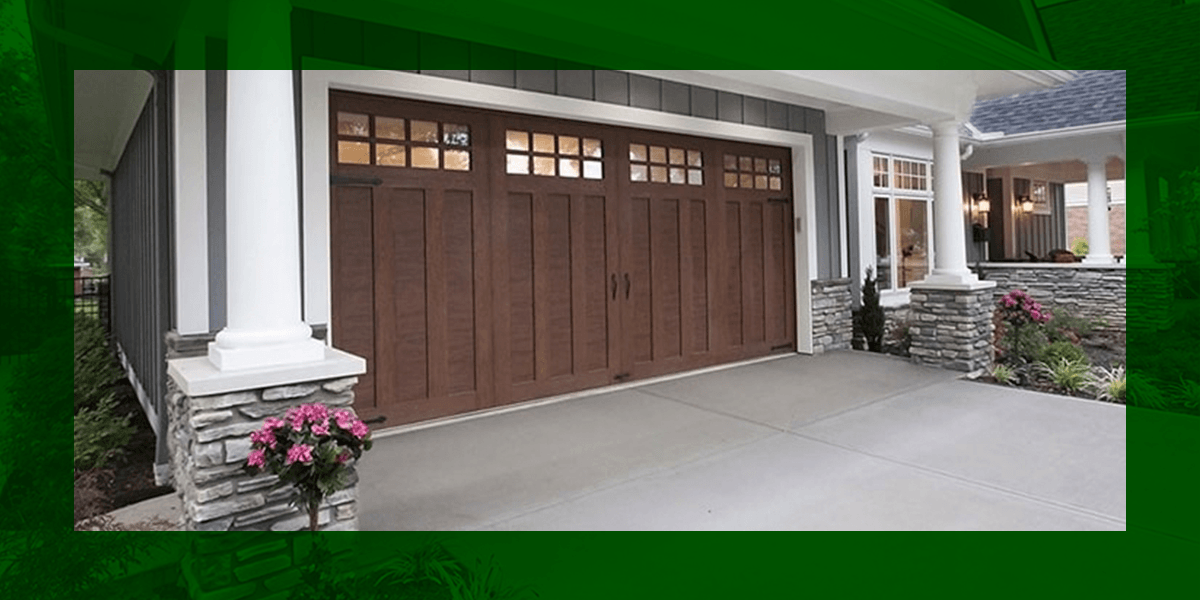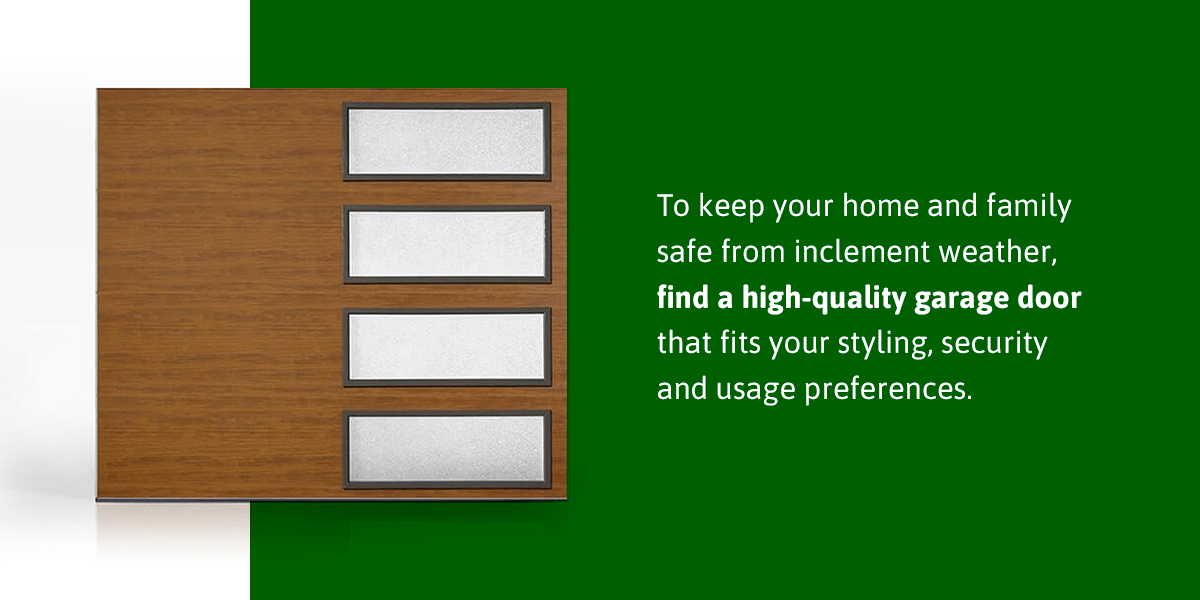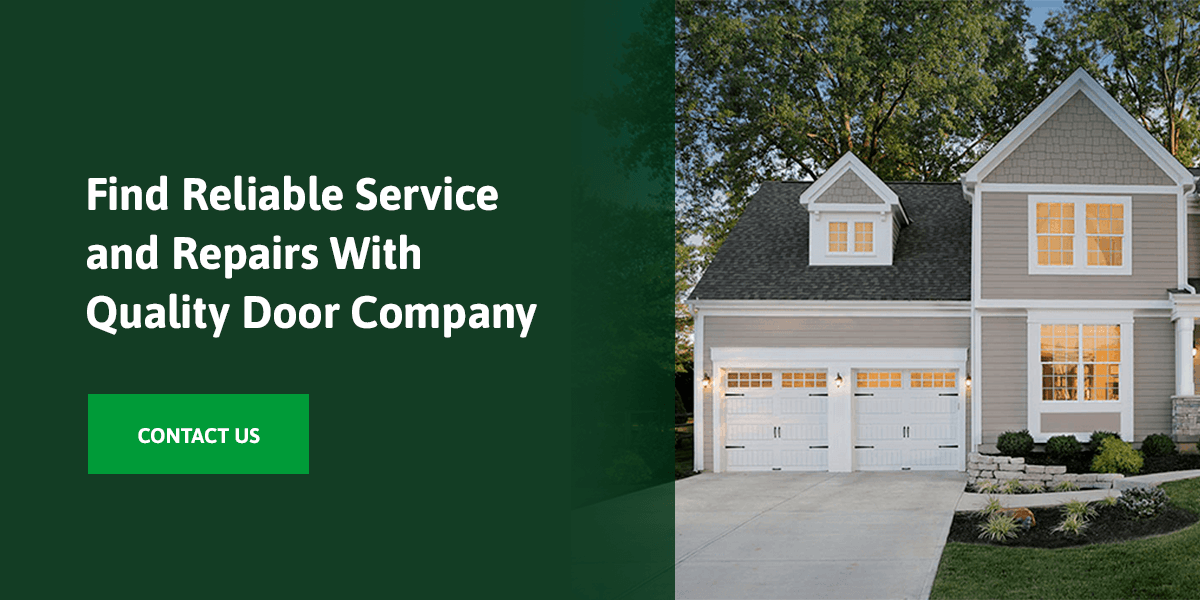
If you come home from a long day at work to discover that your garage door has been open all day, it might not be because you forgot to lower it on your way out. A garage door that opens unpredictably can indicate a sensor, power, remote or other mechanical issue. Luckily, if you notice your garage door randomly opening, you can often fix it yourself.
Look at the following reasons your garage door opens by itself and how you can fix it.
Common Causes — and Fixes — for Garage Doors Opening on Their Own
The causes of garage door malfunctions can range from a minor sensor mishap to a power surge issue that requires the help of an experienced repair team. Troubleshooting why your garage door opens unpredictably can help you decide whether it’s a quick DIY fix or a situation that requires professional service.
Explore the following causes of garage door malfunctions and how to fix a garage door opening by itself.
1. Safety Sensors
One of the simplest fixes for garage door malfunctioning is removing debris, objects or vehicles from your door’s sensors. Safety sensors detect objects in the door’s path. If someone or something is in the way, the sensors will force the garage door to reopen to avoid injuring or damaging anything.
You’ll notice the sensors working their magic each time you pass under a garage door before it can completely close, causing the door to open back up again. While these safety sensors protect you and your possessions, they may also cause your garage door to open randomly.
Luckily, safety sensors causing your door to open are an easy fix. Ensure no stray objects are blocking the sensors so your garage door can close fully. When you park in your garage, pull forward far enough that your car is past the sensor’s detected areas. Freeing these few inches of space can quickly eliminate garage door malfunctioning issues.
2. Overlapping Signals
Like radio frequencies, your garage door signal can trigger other garage doors around your neighborhood without noticing. Your next-door neighbor may close their garage door and yours too. This occurrence happens much more often than you may think, so connecting with your neighbors can be the best action if your garage door is randomly opening.
If your next-door neighbors’ garage door opener or remote syncs to your home’s door, you can stop your garage door from malfunctioning by troubleshooting. The following steps should program your remote control and opener to only sync to your garage door:
- Check that the opener connects to power and the door’s manual lock is off.
- Ensure the opener’s antenna is in the correct position to receive signals from the remote control.
- Locate the Learn button on your garage door opener. This button is typically next to the antenna.
- Press and hold the learn button for 7 seconds, or until the LED light goes out; this will clear the memory so no radio signals will operate your door.
- Press the Learn button one more time and release.
- Choose a button on your remote control to sync to your opener. Hold it for three seconds before releasing it.
- If the steps are successful, you will notice a flashing LED light on the remote, indicating that it syncs to the opener.
Open and close your garage door using your opener and remote control before asking your neighbor to try their accessories on your door.
3. Stuck Button Controls
It’s common for a garage door button to decrease in functionality due to dirt buildup, old age or exterior damage. If a garage door button is stuck, your door will likely need more communication between both machinery pieces to operate smoothly.
If your wall-mounted button gets stuck, the fix is quick and easy. The best solution to this garage door malfunction is to replace the button. Then, your door will operate as usual, and you’ll increase your new opener’s life span. Soon, you can easily open and close your garage door, thanks to the functionality of a brand-new garage button feature at your fingertips.
4. Weather Damage
Weather is not typically a garage door’s best friend. Harsh wind, dropping temperatures and sweeping rainstorms can cause garage door malfunctions before you can prepare your garage for the changing seasons. If your door won’t close, this issue could signify weather-related damage.
A door stuck in its tracks is one of the most common results of temperature fluctuations that cause the garage door to expand and contract. The sizing changes result in a faulty door jamb fit, meaning your door will not open or close correctly. If you notice a stuck door, moisture damage or weather-related dents, the best action is to replace your garage door.
Weather damage is a tricky fix, especially since these factors decrease the life span of trusted garage doors. To keep your home and family safe from inclement weather, find a high-quality garage door that fits your styling, security and usage preferences.

5. Power Surge
Power outages and surges can cause temporary garage door malfunctions. While your door may open on its own or seem stuck in a position for a few minutes, this issue will typically resolve itself. Wait until your home’s power supply stabilizes, give your garage door opener a few minutes to readjust to the returned power and use your remote control to activate your garage door.
If the power takes a few days to return to normal, your garage door’s manual release function can get you in and out of the house. Pull the red release cord connected to the opener and manually lift and shut the garage door. Pulling the red release cord toward the garage door while it’s closed can reset your door so you can easily use your remote control again in no time.
6. Old Remotes — Before 1993
Homeowners with old garage door remotes face the same challenges as the causes of garage door malfunctions above. Garage door remotes and openers older than 1993 have a fascinating past, including reasons to avoid these decades-old mechanic faults.
In the early 1990s, the U.S. government deemed garage door remotes a safety hazard, as doors without sensors would open and shut unpredictably. To avoid any more harm to homeowners and their families, Congress passed the Consumer Product Safety Improvement Act in 1990. This mandate required garage door openers to update with the latest IR sensors ANDI 325. LiftMaster® openers were revolutionary in 1993, quickly becoming the safest and best-selling garage door operators of their time.
If your garage door remote is older than 1993, we recommend installing new LiftMaster openers and a remote system. Replacing your openers can ensure a longer life span for your garage door’s open and close mechanics while prioritizing safety for your whole family.
Find Reliable Service and Repairs With Quality Door Company
When garage door malfunctions strike when you least expect it, Quality Door Company is here to help. With over three decades of offering quick and efficient services to the West Michigan area, we can help assess your garage door repair needs so you can return to your typical routine in no time. Our services include spring, panel, opener and cable repairs right in your home. No matter the cause of your garage door malfunction, we can look at all parts of the door to find the best route to restore normalcy.
At Quality Door Company, we prioritize preventive maintenance to avoid your average garage door issues. You can schedule annual maintenance appointments to increase your door’s life span, keep your family safe and reduce repair costs.
Schedule your appointment with us today to start on your garage door repairs.


